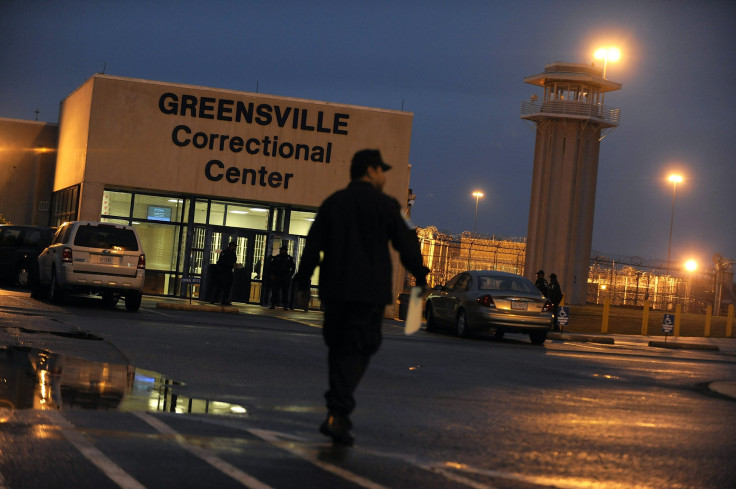Virginia Prisons’ Tampon Ban For Visitors, Staff Suspended After Widespread Criticism

In a series of tweets on Tuesday, Virginia Secretary of Public Safety and Homeland Security Brian Moran revoked the ban on the use of tampon by visitors, staff, and volunteers while visiting state prisons.
The ban was first revealed Monday, and severely criticized by civil rights advocates, who argued the policy was harmful to both prisoners and their visitors.
Moran wrote on Twitter: "Having been recently informed of a recent Virginia Department of Corrections (DOC) visitation policy, I have ordered its immediate suspension until further review.”
He said he understood “DOC's precautionary steps to detect the rising threat of contraband, overdoses and even deaths among our offender population.”
Since the policy received widespread criticism, Moran said he felt the need to suspend it immediately. He wrote about how the policy will undergo further review for implementation and understand potential consequences that can arise due to it.
Though the policy has not taken effect and is scheduled for October 6, I feel it appropriate to immediately suspend the newly developed policy until a more thorough review of its implementation and potential consequences are considered. (3/3)
— Secretary Bob Mosier (@VA_PSHS) September 25, 2018
On Monday, the Department of Corrections announced visitors to state prisons will be prohibited from wearing tampons and menstrual cups from Oct. 6 onward, as they believed contraband could be concealed in them and brought to the prison.
A Sept. 17 memo issued by state corrections operations chief A. David Robinson to the prison wardens said “multiple images of hidden objects on the person of staff, volunteers and visitors,” were effectively captured by the new full-body screening systems at the prisons. “As a result of recent inquiries about feminine hygiene products being an ideal way to conceal contraband,” he said.
“Offender visitors who have been recognized by the body scanner machine having a foreign object that could possibly be a tampon and has failed to remove such item prior to being screened, will have their visitation terminated for the day and will have their visitation privileges reviewed,” a letter from the warden at the Nottoway Correctional Center informing visitors and inmates about the policy said.
“The policy regarding visitors’ body cavities aims to keep contraband from entering prison facilities,” Lisa Kinney, director of communications for the Virginia Department of Corrections said in an email to ThinkProgress. “If someone chooses to visit a Virginia Department of Corrections inmate, he or she cannot have anything hidden inside a body cavity. There have been many instances in which visitors have attempted to smuggle drugs into our prisons by concealing those drugs in a body cavity, including the vagina.”
“In consultation with the Attorney General’s [Mark R. Herring (D)] office, it was decided that facilities would offer pads to women who are wearing tampons while visiting a prison so the tampons don’t appear as possible contraband on a body scan,” she added.
Claire Guthrie Gastañaga, executive director of the American Civil Liberties Union of Virginia, criticized it, saying any policy that might discourage visitors should be subjected to thorough review.
“In addition, a policy like this one that requires those who wish to visit people who are incarcerated to set aside their dignity and health is simply unacceptable,” she said.
It's simply unacceptable that the @VADOC would issue a policy like this one to prohibit visitors from wearing tampons or menstrual cups in VA jails. Such a policy discourages those who wish to visit people who are incarcerated & requires them to set aside their dignity & health. pic.twitter.com/6tyHcZt88N
— ACLU of Virginia (@ACLUVA) September 24, 2018
Visitors also weren’t very pleased with the new policy.
"During visitation over the weekend we were told to read a note that was posted,” Kristian Jones, who made regular visits to see Jemond Townes in the prison told News 3. "I think it's disgusting. I think it's inhumane. It's unsanitary. I understand keeping drugs out of the prison, but if we’re honest here a lot of drugs go in through other ways - not just through the women, not just through the visitors.”
The relationship between the two nor the prison in which Townes has been placed were not revealed.
However, Kinney saw the policy as a move toward keeping offenders and staff at the facilities safe.
“We know that people who have loved ones in Virginia prisons don’t want visitors to be able to smuggle in lethal drugs, putting their loved ones’ lives in danger,” she said.
© Copyright IBTimes 2025. All rights reserved.





















